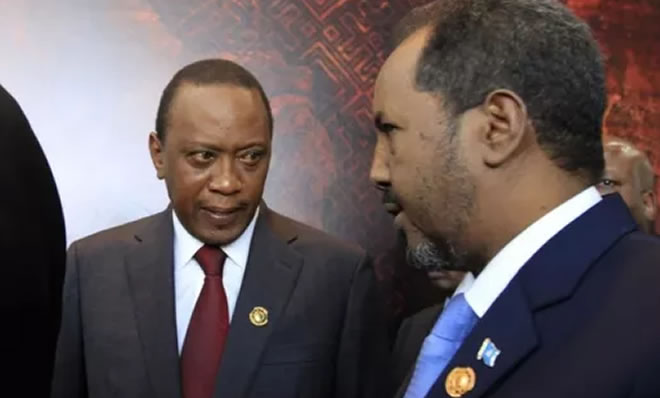
President Uhuru Kenyatta has intervened to have the Somali government lift a ban on miraa imports from Kenya. Government spokesman Eric Kiraithe said the Head of State had personally contacted his Somalia counterpart, Hassan Sheikh Mohamoud, to reinstate entry of the stimulant to his country.
“The President has made his counterpart aware of how the ban is affecting farmers,” said Kiraithe. He said the Foreign Affairs Ministry will send a team to the troubled neighbouring country to mend trade relations.
Kiraithe was, however, quick to absolve Meru Governor Peter Munya of any blame regarding the ban, asserting that misconception about miraa could be the cause of the ban.
“Governors have no influence on international issues and international trade between Kenya and other nations,” he said. He added that the ban was at the discretion of the Somali government and not influenced by Munya.On Tuesday evening, Somalia’s Ambassador to Kenya Gamal Hassan said Munya’s visit to Hargeisa in July had ignited political pressure in his country leading to the ban. Munya had travelled to Hargeisa, the capital of Somalia’s breakaway region of Somaliland, to lobby for trade for the region to low import taxes for the stimulant.
Amid reactions, Munya said he feared for his life claiming that miraa cartels could kill him. “I have been fighting for miraa farmers since I became governor,” he said. Miraa farmers and traders in Meru county are counting losses running into millions of shillings following the ban.
The UK and The Netherlands categorised the stimulant as a class C drug subsequently imposing a ban on the stimulant popularly known as khat. Meanwhile, the government has promised to investigate the killings of two journalists in Kenya.
Kiraithe said the State has launched investigations into the killings and promised to bring the culprits to book. “The government will protect the journalist in the work. But I want to urge journalists to try not expose themselves especially when covering controversial stories,” he said.